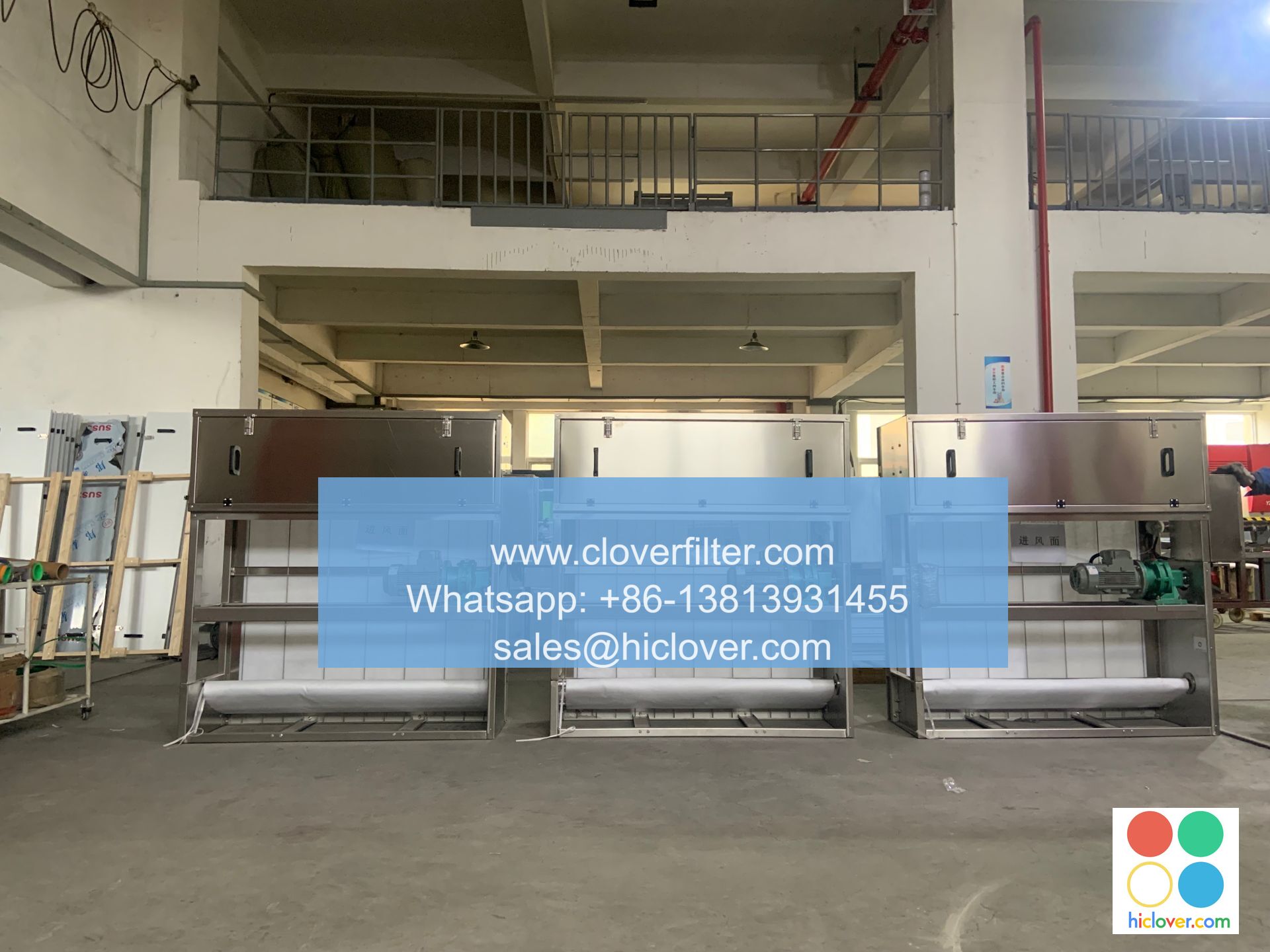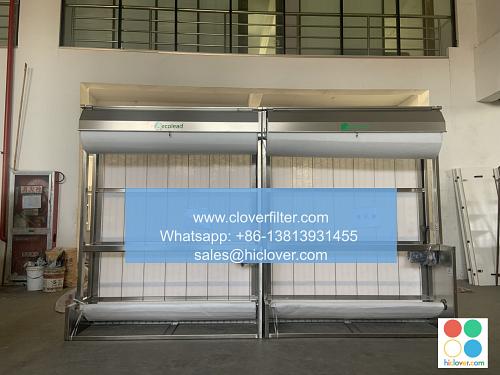Automatic Roll Air Filters and Their Role in Preventing Pharmaceutical Contamination

Pharmaceutical manufacturing facilities require the highest level of air quality to prevent contamination and ensure the production of safe and effective products. One crucial component in achieving this level of air quality is the use of automatic roll air filters. These filters play a vital role in preventing pharmaceutical contamination by capturing airborne particles, microorganisms, and other contaminants that could compromise the quality of pharmaceutical products.
Automatic roll air filters are designed to provide a continuous supply of filtered air to pharmaceutical manufacturing facilities. They work by drawing in air through a series of filters, which capture airborne particles and contaminants, and then releasing clean air back into the facility. The filters are typically made of a pleated material, such as fiberglass or synthetic fibers, which provides a large surface area for capturing particles. The filters are also designed to be self-cleaning, with a automatic roll system that replaces theDirty filter media with clean one, reducing the need for manual maintenance and minimizing downtime.
The use of automatic roll air filters in pharmaceutical manufacturing facilities provides several benefits, including improved air quality, reduced risk of contamination, and increased productivity. By capturing airborne particles and contaminants, these filters help to prevent the introduction of microorganisms and other contaminants into the manufacturing process, reducing the risk of contamination and ensuring the quality of pharmaceutical products. Additionally, automatic roll air filters can help to reduce the need for manual cleaning and maintenance, freeing up staff to focus on other tasks and increasing overall productivity.
In addition to their role in preventing pharmaceutical contamination, automatic roll air filters also play a critical role in maintaining regulatory compliance. Pharmaceutical manufacturing facilities are subject to strict regulations and guidelines, including those set by the FDA and ISO, which require the use of high-quality air filtration systems to prevent contamination and ensure product quality. Automatic roll air filters can help facilities meet these regulations by providing a reliable and effective means of capturing airborne particles and contaminants.
The selection of automatic roll air filters for pharmaceutical manufacturing facilities depends on several factors, including the type of products being manufactured, the level of air quality required, and the specific regulations and guidelines that apply. Facilities should consider factors such as filter efficiency, airflow rate, and maintenance requirements when selecting an automatic roll air filter system. Additionally, facilities should ensure that the filter system is compatible with their existing HVAC system and can be easily integrated into their manufacturing process.
In terms of maintenance, automatic roll air filters require regular monitoring and maintenance to ensure they continue to function effectively. Facilities should establish a regular maintenance schedule, which includes tasks such as checking filter pressure drops, monitoring airflow rates, and replacing filters as needed. Additionally, facilities should ensure that maintenance personnel are properly trained and equipped to perform maintenance tasks safely and effectively.
Despite the many benefits of automatic roll air filters, there are also some potential drawbacks to consider. One of the primary concerns is the potential for filter failure, which can lead to a reduction in air quality and an increased risk of contamination. Facilities should take steps to minimize this risk, such as regular maintenance and monitoring, and by selecting high-quality filter systems that are designed to meet the specific needs of their facility.
In conclusion, automatic roll air filters play a critical role in preventing pharmaceutical contamination and ensuring the quality of pharmaceutical products. By capturing airborne particles and contaminants, these filters help to prevent the introduction of microorganisms and other contaminants into the manufacturing process, reducing the risk of contamination and ensuring product quality. Facilities should carefully consider their air filtration needs and select a high-quality automatic roll air filter system that meets their specific requirements.
Conclusion
In summary, automatic roll air filters are a crucial component in pharmaceutical manufacturing facilities, providing a reliable and effective means of capturing airborne particles and contaminants. By understanding the benefits and potential drawbacks of these filters, facilities can make informed decisions about their air filtration needs and select a high-quality filter system that meets their specific requirements. With the right filter system in place, facilities can help ensure the quality of their products, reduce the risk of contamination, and maintain regulatory compliance.
FAQs
Q: What is the primary function of automatic roll air filters in pharmaceutical manufacturing facilities?
A: The primary function of automatic roll air filters is to capture airborne particles and contaminants, preventing the introduction of microorganisms and other contaminants into the manufacturing process and ensuring the quality of pharmaceutical products.
Q: What factors should be considered when selecting an automatic roll air filter system for a pharmaceutical manufacturing facility?
A: Facilities should consider factors such as filter efficiency, airflow rate, and maintenance requirements when selecting an automatic roll air filter system. Additionally, facilities should ensure that the filter system is compatible with their existing HVAC system and can be easily integrated into their manufacturing process.
Q: How often should automatic roll air filters be maintained?
A: Automatic roll air filters require regular monitoring and maintenance to ensure they continue to function effectively. Facilities should establish a regular maintenance schedule, which includes tasks such as checking filter pressure drops, monitoring airflow rates, and replacing filters as needed.
Q: What are the potential drawbacks of using automatic roll air filters in pharmaceutical manufacturing facilities?
A: One of the primary concerns is the potential for filter failure, which can lead to a reduction in air quality and an increased risk of contamination. Facilities should take steps to minimize this risk, such as regular maintenance and monitoring, and by selecting high-quality filter systems that are designed to meet the specific needs of their facility.

